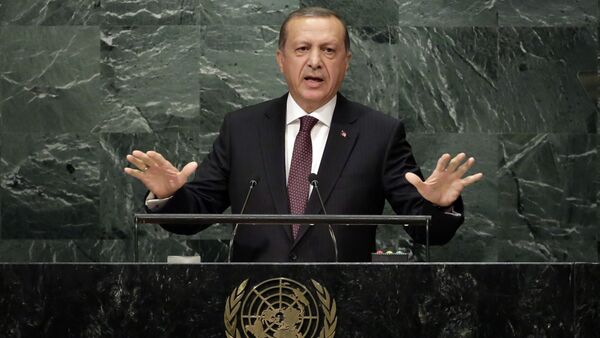"It would be in Turkey’s benefit to extend the state of emergency for three months," Erdogan said at a meeting in Ankara, and brushed off criticism for prolonging the now three-month long regime, declaring that no one should try to dictate "a calendar or roadmap" for Turkey.
"They [critics] say one year isn’t right for Turkey. Let’s wait and see, maybe 12 months won’t be enough," he said. The state of emergency was first declared July 20, and Erdogan’s statements come just a day after Turkey’s National Security Council, made up of military and political leaders, recommended that it be extended another three months.
The council concluded that the extension was necessary "to take measures to protect the rights and freedoms of citizens."
Erdogan, in support of the recommendation, asserted that since terrorism will be addressed during the state of emergency, Turkish citizens will support it.
"This state needs time to be purged of these terrorist organizations’ extensions," he said. "Right now we’re racing against time."
Nearly three hundred people died in the coup attempt, which began when elements of the military attempted to take control of the government. The violence ended with police clashing with helicopters, tanks and troops in Istanbul and Ankara.
Some 32,000 people have been arrested in connection with the event, causing the Turkish Justice Ministry to call for the building of more courtrooms to process them. So far an estimated 7,000 people have been processed.
Turkey has continued its call to the US to extradite a former Erdogan ally, Turkish business leader and cleric Fethullah Gulen, who the Turkish president’s administration claims is the organizer of the coup. Washington has stated its willingness to cooperate, but has asked for clear proof of Gulen’s complicity in the violence.




